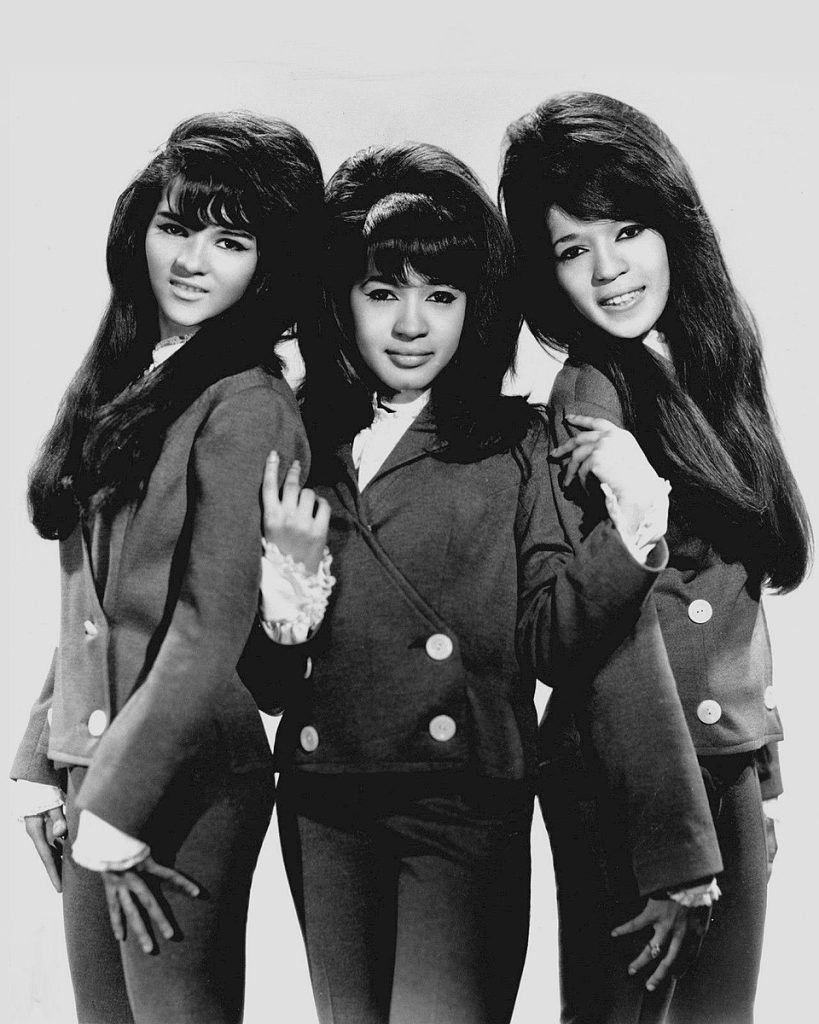
Be My Baby: A Symphonic Sigh of Love
In the realm of pop music, there exist songs that transcend time, their melodies and lyrics weaving themselves into the very fabric of our collective consciousness. “Be My Baby” by The Ronettes is one such timeless gem, a song that has echoed through the decades, captivating listeners with its infectious energy, heartfelt sincerity, and Phil Spector’s groundbreaking Wall of Sound production.
Released in 1963, “Be My Baby” stands as a beacon of the girl group era, epitomizing the genre’s blend of youthful exuberance and romantic yearning. The song’s opening notes, a cascade of handclaps and Spector’s signature orchestral flourishes, immediately transport us to a world of teenage dreams and dance floor bliss.
At the heart of “Be My Baby” is the trio of angelic voices belonging to The Ronettes: lead singer Ronnie Spector, her sister Estelle, and their cousin Nedra Talley. Their voices intertwine in perfect harmony, creating a tapestry of sound that is both powerful and delicate. Ronnie Spector’s lead vocals are particularly captivating, her voice soaring with an emotional intensity that is both vulnerable and determined.
The lyrics of “Be My Baby” are a simple yet potent expression of teenage love, capturing the raw emotions of infatuation and longing. The song’s narrator pleads with her beloved to “be my baby,” a declaration of devotion that is both innocent and passionate. The lyrics are further enhanced by the song’s repetitive structure, with the phrase “be my baby” echoing throughout, creating an irresistible sense of urgency and desire.
“Be My Baby” is not merely a pop song; it is a sonic masterpiece, a testament to Phil Spector’s genius as a producer. Spector’s Wall of Sound production, a technique that layered multiple instruments and vocals to create a dense, symphonic sound, is in full effect here. The song opens with a flourish of handclaps and strings, and the melody is further embellished by a lush arrangement of drums, guitars, piano, and saxophone. Spector’s signature “echo chamber” effect adds an ethereal dimension to the sound, creating a sense of space and longing that perfectly complements the song’s emotional core.
The impact of “Be My Baby” on popular culture is undeniable. The song has been covered by countless artists, from Elvis Costello and Cher to The Beach Boys and U2. It has appeared in numerous films and television shows, and its instantly recognizable melody has been sampled by hip-hop artists and electronic music producers.
“Be My Baby” is more than just a pop song; it is a cultural touchstone, a reminder of a time when music had the power to transport us to another world, to make us feel alive. It is a song that has stood the test of time, continuing to inspire and captivate listeners with its timeless message of love, longing, and the sheer joy of being young.